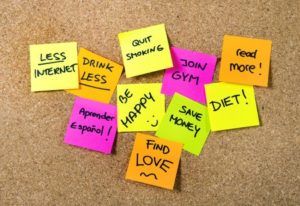 Ping. Ping ping ping. Swoosh. Ping.
Ping. Ping ping ping. Swoosh. Ping.
Oh hi. Hello. I’m sorry, I didn’t see you there. Ping. Sorry. Okay, I’ll put this thing away. I posted a video of my dog on Facebook this afternoon; he learned to hula hoop. I had to share. The people love it. Ping ping ping.
That’s one way to start a conversation with a friend, a business partner or a would-be lover.
Personally, I prefer to communicate, to become acquainted with others in analog.
Since its inception in February 2004, Facebook has been used as a gathering place to meet like minds and to like faces; to stay connected with old friends; and of course, to share cat memes and argue over Dexter’s fate. But these days we argue over other things too, real life things with real consequences. Now, instead of bringing people together our collective constant presence on Facebook is tearing them apart.
Facebook might be bad for your mental health.
Arguments. The comments section. It’s all compounded by the comparisons. Your college roommate has it all: the husband, the house, the baby. Her life is perfect. Or it seems that way. Her life may be great, but yours is too. That’s hard to remember sometimes when filters so easily mask credit card debt and sleepless nights.
The truth is, Facebook is making us all pretty unhappy. A Danish research firm, the Happiness Research Institute, has the evidence to prove it. A study conducted among 1,095 Facebook users asked participants to not log in to the site for a period of seven days. A control group was instructed to maintain normal activity. At the end of the study period, those who abstained were 55 percent less likely to feel stressed and reported many fewer instances of restlessness or loneliness. Of the control group, 81 percent reported feeling ‘happy’ while 88 percent of non-Facebook users felt happiness.
“Facebook is a constant bombardment of everyone else’s great news, but many of us look out of the window and see grey skies and rain, especially in Denmark.” said Meik Wiking, CEO of the Happiness Research Institute said. “The main takeaway from this study is awareness of the negative aspects that social comparisons have, and how we should be mindful of how Facebook and social media affect how we evaluate our lives.”
It’s true of Denmark, and of Washington DC and Bethesda MD too. When envy and conflict rise over community and the generous spirit of sharing good tidings, it might be time to consider taking a break — for seven days or longer. Spend the time you’d take to share the video of our friend’s hula hooping dog, and read a book with your toddler; linger a little longer over the dinner table; and take care to take care of yourself first.


 While your friends and family are resolving to cook more dinners at home; to lose 50 pounds; to travel more; or to check seeing Tom Petty in concert off the old bucket list, but you’re starting smaller: with yourself. You’ve decided the year 2017 is the year of you.
While your friends and family are resolving to cook more dinners at home; to lose 50 pounds; to travel more; or to check seeing Tom Petty in concert off the old bucket list, but you’re starting smaller: with yourself. You’ve decided the year 2017 is the year of you.